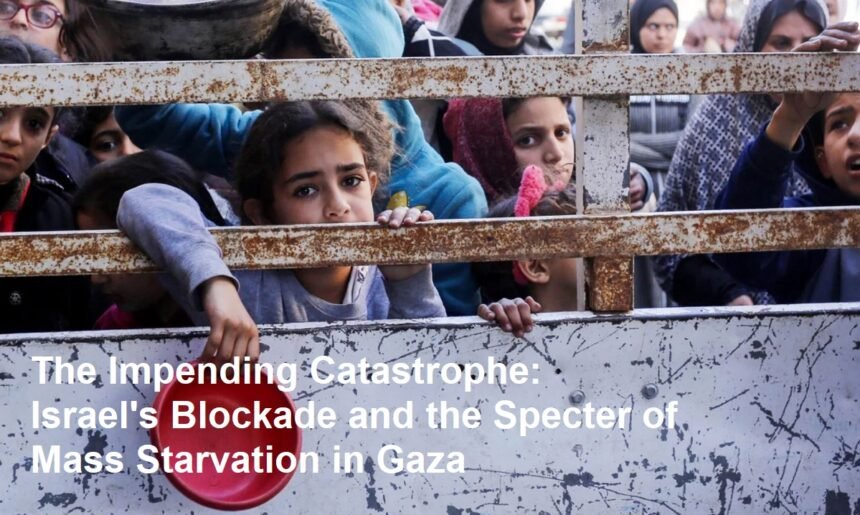The situation in Gaza has reached a critical juncture, teetering on the precipice of a humanitarian catastrophe of unprecedented scale. Recent reports highlighting Israel’s obstruction of aid deliveries paint a grim picture, suggesting that the already dire circumstances are rapidly deteriorating, placing the population at imminent risk of mass starvation and death. Understanding the gravity of this situation necessitates a dispassionate assessment of the contributing factors and the potential consequences of inaction.
For years, the Gaza Strip has been subject to a complex set of restrictions, often characterized as a blockade, imposed by Israel citing security concerns related to Hamas. While the validity of these concerns is a matter of ongoing debate, the practical effects of the blockade on the civilian population are undeniable. Restricted access to essential goods, including food, medical supplies, and fuel, has chronically undermined the economy and public health infrastructure within Gaza. The ongoing conflict, compounded by the destruction of vital infrastructure and displacement of civilians, has further exacerbated these pre-existing vulnerabilities.
The latest allegations of Israel actively blocking aid deliveries represent a significant escalation in this already precarious situation. Reports from international organizations and humanitarian agencies detail instances of aid trucks being delayed, denied entry, or subject to stringent and seemingly arbitrary inspections. These bureaucratic hurdles, often citing unspecified security threats, have significantly hampered the flow of crucial assistance to a population in dire need. The implications of these actions are particularly devastating considering the widespread displacement and destruction that have left hundreds of thousands reliant on external aid for survival.
The specter of mass starvation looms large. With food supplies dwindling, access to clean water severely limited, and the healthcare system on the verge of collapse, the conditions are ripe for a rapid and catastrophic decline in public health. Malnutrition rates, particularly among children, are already alarmingly high, and the lack of access to essential medical care further compounds the vulnerability of the population to disease and death. The deliberate obstruction of aid deliveries only serves to accelerate this descent into humanitarian crisis.
The international community has a moral and legal obligation to intervene. Under international humanitarian law, warring parties are obligated to protect civilians and facilitate the provision of humanitarian aid. The alleged actions of Israel in blocking aid deliveries raise serious questions about its adherence to these fundamental principles. It is imperative that international organizations, governments, and humanitarian agencies exert maximum pressure on all parties involved to ensure the unimpeded flow of aid to Gaza.
This is not merely a matter of political maneuvering; it is a question of life and death for hundreds of thousands of innocent civilians. The potential for mass starvation and death in Gaza demands immediate and decisive action. A failure to act will not only result in an immense human tragedy but will also further erode the credibility of the international community and undermine the foundations of international humanitarian law. The world must not stand idly by while Gaza teeters on the brink of collapse. A swift and effective response is essential to avert a humanitarian catastrophe of unimaginable proportions.









